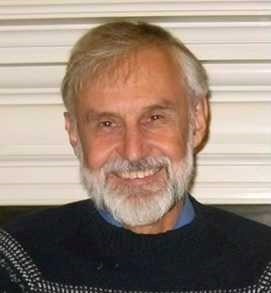Paul Humphreys (1950-2022)
Paul Humphreys, Commonwealth Professor of Philosophy at the University of Virginia, has died.

Professor Humphreys was well-known for his research in philosophy of science, which included work ranging from emergence, probabilistic causality, scientific explanation, to the philosophy of computer simulations. You can learn more about his work here and here.
Professor Humphreys was a part of the University of Virginia Department of Philosophy beginning in 1978, retiring in 2021. Over the course of his career, he held visiting appointments at Stanford University, Ecole Normale Supérieure, Paris, Institut d’Histoire et Philosophie des Sciences et des Techniques, University of California Los Angeles, University of Arizona, University of Pittsburgh, and California State University, Long Beach. He earned his PhD and MA from Stanford, and his undergraduate degree from the University of Sussex.
In a memorial notice, the University of Virginia Department of Philosophy writes that Professor Humphreys “helped to shape the field through his service to the profession, most recently as series editor for Oxford Studies in the Philosophy of Science. But his contributions transcend both disciplinary and national boundaries. At UVA, Paul established working groups with faculty from a wide range of disciplines, including data science, economics, and sociology, to examine epistemological and ethical questions raised by new developments in artificial intelligence, data science, and neuroscience… He generously sponsored numerous international graduate and postdoctoral students who came to Charlottesville to study with him. Paul’s influence will live on, not only in his many books and articles, but also in the work of the many scholars and students who have benefitted from his intellect and his kindness.”
He died on August 9, 2022, of a glioblastoma.
An obituary is here.


Paul was a wonderful person, and an extraordinarily insightful philosopher. He didn’t know it when he died, but he had just been nominated by 8 prominent philosophers from around the world for the Hempel award, which honors a lifetime of achievement in the philosophy of science. I’ve written an obituary that describes his work a bit. It will be published in the PSA newsletter soon.
The aforementioned academic obituary has been sent around in the PSA newsletter. I’ll paste it in here for those who are not affiliated with the PSA.
# In memory of Paul Humphreys
August 31, 2022
Paul’s influence on the philosophy of science is hard to overstate. Shortly before his death, and without knowing about his medical condition, philosophers from around the world had written in support of his nomination for the Hempel award, which honors a lifetime of achievement in the field.
Paul is rightly celebrated for his agenda-setting work in probability theory (including the paradox that bears his name), for his lucid work on the nature of emergent properties, and for his work on modeling, simulation, and the role of computation in science. Paul developed the concept of epistemic opacity in his 2004 book “Extending Ourselves.” I would wager that, with the exceptions of “falsification” and “paradigm shift,” one could not find another concept that originated within the philosophy of science, and which has acquired greater purchase outside of academic philosophy.
Paul’s most lasting contribution to the field, however, will likely be his brilliant defense of the idea that scientific epistemology has transcended the native capacities of the human mind. Although other philosophers of science have argued that measurement devices are more reliable than human perception, Paul emphasized the grandeur of this idea, arguing that it displaces humans from their former position at the center of the epistemic enterprise. Perhaps more importantly, he also showed that this displacement is not only confined to the domain of measurement and observation. It extends, via computation, to mathematics and inference.
Paul influenced the field by injecting it with great ideas, but he was also a prolific manager of philosophical activity. He sat on the boards of the APA and the PSA, was general editor of *Synthese*, founding editor of *Foundations of Science*, founding editor-in-chief of the book series *Oxford Studies in the Philosophy of Science*, and editor of seven books. At the University of Virginia, he founded the Human and Machine Intelligence Group and directed the center for Data and Knowledge. He was also the kingpin behind the biennial conference series *Models and Simulations in Science*, which has served as the central engine for new work in the area.
Paul was a kind and patient mentor, but also a demanding one. You had to work hard to earn his praise. Nevertheless, his feedback was invariably helpful, and he was *always* generous with his time. He never tired of introducing his students to other senior scholars, he encouraged us to attend international conferences, and he regularly volunteered his assistance with grant applications, letters of recommendation, and the like. Although I finished my PhD with him 9 years ago, he was still reading my work, and was still excited to chat about new ideas. He will be sorely missed.
Charles Rathkopf
Institute for Neuroscience and Medicine
Jülich Research Center
Germany